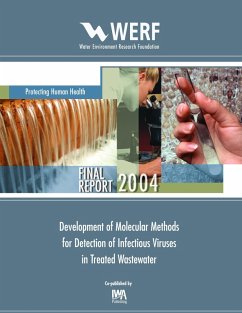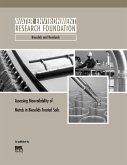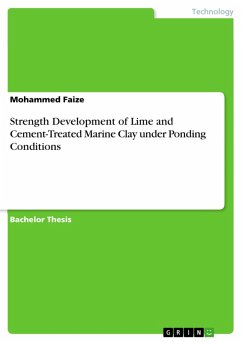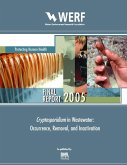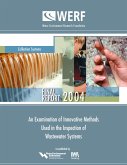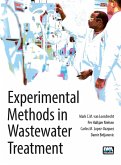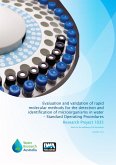Enteroviruses, hepatitis A virus (HAV) and other enteric viruses can survive wastewater treatment processes, even after chlorination, and are found in the final effluents. These viruses can be detected by cell culture techniques with observations for cytopathic effect (CPE). Recently molecular detection of viral nucleic acids has been used. Most viruses found in wastewater are RNA viruses and RT-PCR is a rapid and sensitive method to detect these single-strand RNA enteric viruses. This methodology does not distinguish between infectious and non-infectious viruses. Viruses inactivated in the treatment process can be detected but do not pose a public health threat. Methods are needed to quickly distinguish the infectious viruses from inactivated viruses, both of which may be present in effluents. In this project we investigated the use of a method that combines cell culture and molecular detection. If a sample contains viruses that replicate in cell culture even without CPE, the proof of replication can be demonstrated by the detection of a replicative form (RF) in cell culture that is only present during replication of infectious RNA viruses.
Dieser Download kann aus rechtlichen Gründen nur mit Rechnungsadresse in A, B, BG, CY, CZ, D, DK, EW, E, FIN, F, GR, HR, H, IRL, I, LT, L, LR, M, NL, PL, P, R, S, SLO, SK ausgeliefert werden.

